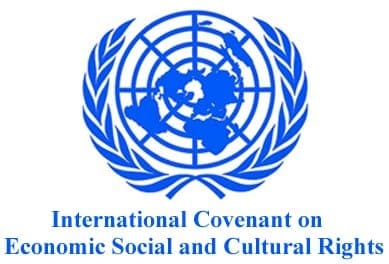International Covenant on Economic, Social and Cultural Rights (ICESCR)
The International Covenant on Economic, Social and Cultural Rights (ICESCR) is one of the 9 core international human rights instruments. Each of these instruments has established a committee of experts to monitor implementation of the treaty provisions by its States parties. ICESCR, along with the other core instruments, is important for persons affected by disability.
ICESCR was ratified on the 20th May 1976, and came into force in Guernsey on 20th August 1976.
ICESCR seeks to guarantee that all human beings enjoy economic and cultural freedoms irrespective of nationality, place of origin, race or ethnicity.
“Part II, Article 2
2. The States Parties to the present Covenant undertake to guarantee that the rights enunciated in the present Covenant will be exercised without discrimination of any kind as to race, colour, sex, language, religion, political or other opinion, national or social origin, property, birth or other status.”

Reports
The International Covenant on Economic, Social and Cultural Rights (ICESCR) requires periodic reports and Guernsey is within the report on the United Kingdom, British Overseas Territories, and Crown Dependencies.
The most recent report is the 6th periodic report.
